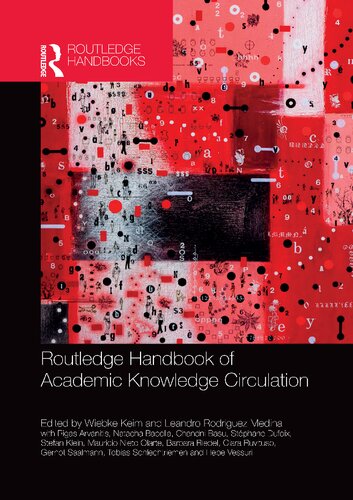

Most ebook files are in PDF format, so you can easily read them using various software such as Foxit Reader or directly on the Google Chrome browser.
Some ebook files are released by publishers in other formats such as .awz, .mobi, .epub, .fb2, etc. You may need to install specific software to read these formats on mobile/PC, such as Calibre.
Please read the tutorial at this link: https://ebookbell.com/faq
We offer FREE conversion to the popular formats you request; however, this may take some time. Therefore, right after payment, please email us, and we will try to provide the service as quickly as possible.
For some exceptional file formats or broken links (if any), please refrain from opening any disputes. Instead, email us first, and we will try to assist within a maximum of 6 hours.
EbookBell Team

5.0
28 reviewsKnowledge is a result of never-ending processes of circulation. This accessible volume is the first comprehensive multidisciplinary work to explore these processes through the perspective of scholars working outside of Anglo-American paradigms. Through a variety of literature reviews, examples of recent research and in-depth case studies, the chapters demonstrate that the analysis of knowledge circulation requires a series of ontological and epistemic commitments that impact its conceptualisation and methodologies.
Bringing diverse viewpoints from across the globe and from a range of disciplines, including anthropology, economics, history, political science, sociology and Science & Technology Studies (STS), this wide-ranging and thought-provoking collection offers a broad and cutting-edge overview of outstanding research on academic knowledge circulation. The book is structured in seven sections: (i) key concepts in studying the circulation of academic knowledge; (ii) spaces and actors of circulation; (iii) academic media and knowledge circulation; (iv) the political economy of academic knowledge circulation; (v) the geographies, geopolitics and historical legacies of the global circulation of academic knowledge; (vi) the relationships between academic and extra-academic knowledges; and (vii) methodological approaches to studying the circulation of academic knowledge.
This handbook will be essential reading for academics, researchers and postgraduate researchers in the humanities and social sciences interested in the circulation of knowledge.